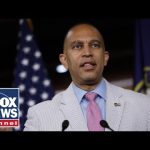In the latest attempt to enforce order and discipline, Secretary of Defense Pete Hegseth launched a campaign against one of humanity’s most ancient and noble features: the beard. In doing so, he set ablaze a cultural debate that goes beyond mere facial hair, touching on standards, tradition, and the essence of military discipline. While some might dismiss this as superficial, others recognize that it reflects underlying views on the importance of maintaining standards — both in appearance and in action.
Hegseth’s decision to eliminate beards from the military serves as a metaphor for addressing what he sees as a decay of standards. It’s like the broken windows theory of policing, he suggests. When small transgressions are overlooked, bigger issues inevitably follow. For him, grooming is not just about looks but about accountability, discipline, and a sense of unity within the ranks. Imagine a military without the commitment to detail that builds the very foundation of its strength.
His firm stance also casts a spotlight on leadership. A military leader who hesitates to enforce standards is akin to a teacher who doesn’t correct a student’s missteps, allowing minor faults to snowball into significant problems. Enforcing uniform appearance is a way to reassert authority and demonstrate that exceptions won’t erode the integrity of the whole. Leaders require respect, and adherence to regulations forms a part of the respect chain that keeps an army functioning smoothly.
However, not everyone agrees with Hegseth’s position. Critics jest that if Vikings sported beards and struck fear into their foes, perhaps there’s merit in reconsidering this directive. They raise a humorous but deep point: Shouldn’t our military embody that spirit of fierce determination? It’s amusing to think of an army of “hairless, baby-faced Office Depot managers” being more intimidating than bearded combatants ready to uphold our way of life.
The real question here delves into what we desire from our military: a commitment to unity and professionalism or the freedom to express individuality in nonessential ways. Hegseth’s actions force reflection on whether uniformity is merely about looks or something far deeper—matters of discipline and order in a world where values are constantly challenged. Regardless of one’s stance, the debate underscores the importance of maintaining focus on what keeps our military efficient and prepared, ensuring that their mission to protect freedom remains undiluted.




